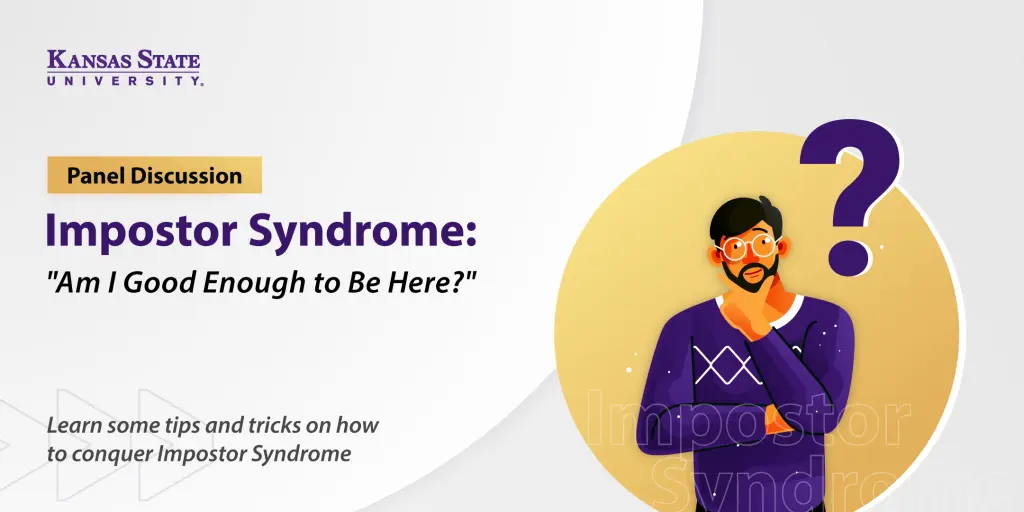Imposter Syndrome Is on the Rise: How to Overcome It
Have you ever felt like you don’t belong? Or that you’re not qualified for something that you undoubtedly have the experience for? This could indicate that you, like 7 out of 10 people in the U.S., are experiencing imposter syndrome.
Though imposter syndrome isn’t officially named a mental health disorder in the Diagnostic and Statistical Manual of Mental Disorders (DSM-5), people who experience it often experience similar feelings of anxiety and depression, which can lead to burnout and exhaustion.
With May being mental health awareness month and the effects of the COVID-19 pandemic still prevalent in our everyday lives, it’s crucial that we equip ourselves with the proper tools to take care of our mental health.
Millions of people are affected by mental illness each year. According to the National Alliance on Mental Illness (NAMI), one in five adults experience mental illness, and one in 20 adults experience serious mental illness. Not to mention the effects untreated mental illness can have on a person’s physical health and well-being.

Well, What’s Imposter Syndrome?
Loosely defined, imposter syndrome is a psychological pattern where a person believes that they’re not as competent as their peers believe them to be. It’s often accompanied by feelings of self-doubt and fear of being a “fraud” despite evidence indicating that’s not the case.
Imposter syndrome was officially coined in 1978 by psychologists Pauline Rose Clance and Suzanne Imes. At first, researchers believed that only women experienced this phenomenon, but after further research, it became clear that both men and women can be affected.
Imposter syndrome knows no bounds and can impact anyone, regardless of their age, gender, race, skill set, or professional accolades.
How Do I Know if I Have Imposter Syndrome?
Imposter syndrome is complex in that there isn’t one specific way that it plays out. It varies from person to person, but here are a few characteristics to look out for:
- You feel like a fraud.
- You underplay your accomplishments.
- You put yourself down over small errors.
- You feel like you owe your success to someone other than yourself.
- You’re an overachiever.
- You tend to self-sabotage.
How Do I Get Past Feeling Like an Imposter?
As with any problem that you face in life, the first step is to acknowledge it. When imposter thoughts start to take over, accept them, embrace them, and then start making positive changes to eliminate them. Here are some tips that can help you overcome imposter syndrome.

Confide in someone.
Negative thoughts, when left alone, tend to multiply. Reach out to a trusted peer, mentor, family member, or mental health provider and tell them how you’re feeling. It’s likely that they’ve felt that way too! Another person’s reassurance may be just what you need and can be a great reminder of your competence.
Write down your achievements.
Grab a notebook, open up the Notes app on your phone, start a Google Doc—you get the gist. Set aside 5 minutes at the end of each week to write down a few of your accomplishments and any ‘wins’ you experienced. It’s easy to slip into a negative headspace when you’re not actively acknowledging the positives. When imposter thoughts start to creep back in, take a look at your list, and remind yourself of how much you’ve achieved.
Go easier on yourself.
When you feel yourself starting to drift into imposter thoughts, pause and ask yourself: Are my feelings valid, or am I setting unmanageable expectations? Would I set these same expectations for someone else? Answer honestly. It’s important to stop these thoughts in their tracks and send them in the opposite direction.
Stop comparing yourself to others.
Comparing yourself to others almost always ends in disappointment. Everyone is different and has their own unique journey. Just because your path hasn’t been the exact same, it doesn’t make your accomplishments any less important. We all have unique skills and talents. No one person is better because of it.
Be present.
When you’re in the thick of a conversation, it can be easy to overanalyze what the other person is saying. If you feel negative thoughts starting to arise, shift the focus off you and really start paying attention to what the other person is saying. Listen to truly understand where they’re coming from, not just to respond.
Face imposter thoughts head-on.
When imposter feelings start to creep in, don’t fight them. Recognize them for what they are and choose to keep charging towards your goals. Acceptance is the key to working through what’s holding you back. Keep moving forward—you can do this!
Putting an End to the Cycle
It’s vital to remember that perfection isn’t possible. Everyone can’t be good at everything. That doesn’t make them a fraud—it makes them human! If you’ve tried to eliminate imposter thoughts and they’re still holding you back, it may be time to speak to a mental health professional.* Seeking professional help is a sign of great strength and care for yourself.

Learn more about how to overcome imposter syndrome by tuning into our on-demand virtual panel discussion, Imposter Syndrome: “Am I Good Enough to Be Here?”.
*If you or someone you know are struggling with mental health, you can contact the Substance Abuse and Mental Health Services Administration (SAMHSA) National Helpline at 1-800-662-4357. The service is confidential, free, and open 24-hours a day, 365 days a year.


